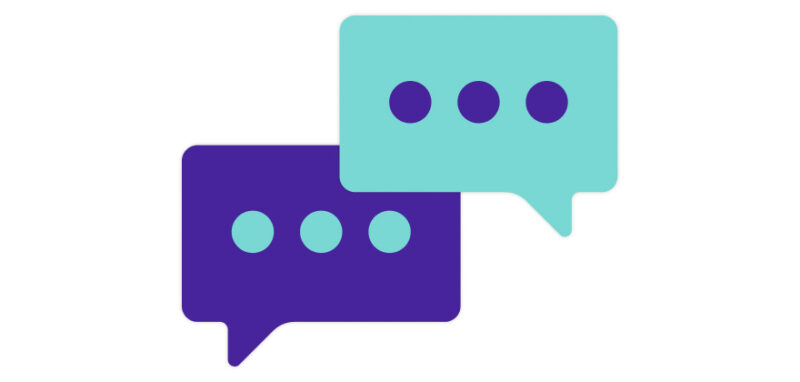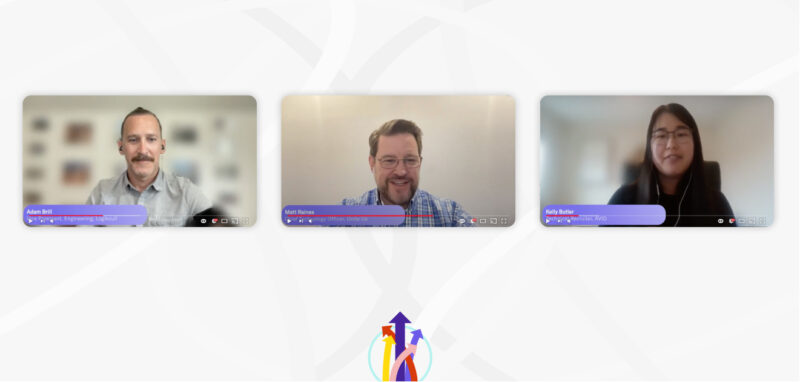
30 Behavioral Interview Questions You Should Be Ready to Answer

If you’re heading into a job interview, chances are you’ve practiced your elevator pitch, figured out how working for the company aligns with your goals, and have a good sense of how your skills and background would be a good fit for the role. That’s a great start! But practicing a variety of behavioral interview questions helps you not only prepare answers to those exact questions but also gets you more comfortable answering this open-ended type of query.
What are behavioral interview questions?Behavioral interview questions generally require you to tell an anecdote as part of the answer. Therefore, it’s important to be able to tell a cohesive story while highlighting the skills and decision-making thought process you used.
The STAR method is one tactic for answering this type of question. We explained that in more detail in this post. Once you have a good understanding of the method, try your hand at answering a number of the below questions (some of the trickier ones have guidance in italics) and you’ll likely feel better prepared than ever before.
Six categories of behavioral interview questionsFor the purpose of this article, we’ll break down the behavioral interview question examples into six categories:
- Communication
- Teamwork
- Work ethic
- Time management
- Adaptability and response to uncertainty
- Motivation and values
1. Tell me about a time you had to explain something complicated to a colleague, client, or superior. What did you do to explain in a way that they would understand—and how did you know when they did indeed understand?
2. How do you drive colleagues to adopt your vision and/or ideas? Give an example of a time you successfully persuaded a person or team to follow your lead on an important project or decision.
3. Give an example of a presentation you were really proud of. What was its purpose, and did you achieve it? How so?
This question is an opportunity to both impress your interviewer by explaining a high-impact presentation you gave, as well as to demonstrate how your communication skills shaped others’ decisions. Choose a presentation that changed someone’s opinion, and be sure to include this outcome as a reason you’re proud of it.
4. Tell me about a time when changing your communication style solved an issue you were having with a colleague. How did you know to do so, and did you change your approach to working with other colleagues because of this instance?
The purpose of this question is to uncover whether you can identify when an issue arises due to communication style vs. a deeper underlying problem. To answer it effectively, give an example with a clear turning point in your approach and a positive outcome that resulted from it.
5. How do you feel about feedback? Tell me about a time that you either delivered or received negative feedback.
Related: Ace the Interview & Get Your Questions Answered
Teamwork6. Think about a time when you struggled to build an important relationship in the workplace. What steps did you take to overcome the challenge, and how is your relationship now?
7. Tell me about a time you felt differently about a decision from a team or colleague, but decided to go along with it rather than cause a fuss. How did you evaluate the relative importance of making the right decision vs. maintaining relationships with the other person or people? In retrospect, do you regret not standing up for your opinion, or was it the right choice?
8. Was there ever a time you strongly disagreed with your manager or other authority figure? What was the situation, and how did you handle it without ruining any relationships (or were there bridges burned)?
9. Give an example of a time you saw a peer struggling and stepped in to help. What was the situation and outcome?
This can be a slippery slope, as you’ll want to pick an instance that doesn’t paint you as overbearing but does highlight empathy toward others. Spend as much time explaining your reasoning behind stepping in as you do the outcome. Be sure to explain how your actions impacted your relationship with the colleague in question.
10. Think about a time you were able to improve productivity and/or morale on your time. How did you do it? What were the underlying problems, and how did you ensure that your solution would circumvent these issues in the future?
Work ethic11. Think about a long-term goal you were (or are) working toward. How do you stay motivated to achieve it given competing priorities?
12. Tell me about a time you identified a complex problem that you knew would take a lot of time and effort to solve. What made you decide to pursue it, and how did you make sure you were focusing on the right things as you were peeling back the layers?
13. Give an example of a time you took on a significant responsibility that fell outside of your job description. Why was it important, and what was the outcome?
In addition to demonstrating your work ethic, this question is a chance to speak to your time management skills. Include any tactics you used to ensure you were able to deliver on your normal job requirements while also going above and beyond.
14. Tell me about a time you worked on a project you didn’t like. How did you stay motivated? How did the fact that you didn’t like it impact the outcome of your work?
15. What was your first job, and why did you take it?
While a high school job isn’t necessarily indicative of skilled work experience, your interviewer could be asking this to test your work ethic. It doesn’t matter if you were serving ice cream or working in investment banking. The important part of your answer is the explanation of why you took the job and what you learned from it.
Time management16. Tell me about a time you had to deliver a project under a tight deadline. What tradeoffs did you have to consider in order to finish on time, and how did that impact the outcome? How did you decide what to prioritize?
17. Give an example of a time you had to manage multiple projects. How did you prioritize and make sure everything was finished in a timely manner?
Virtually every employee has multiple projects to manage at any given time. This question isn’t so much about the projects themselves, but rather how you handle competing priorities.
18. How do you approach interruptions to a schedule—either your own or a project’s schedule?
19. Tell me about a time you had to wait on someone else in order to move forward on a project. How did you make sure you were spending your time effectively while you were waiting?
20. Have you ever not had enough work to do? If so, how did you decide where to spend your spare time?
This is an additional chance to highlight any times you’ve gone beyond the call of duty at work. Choose a time when you not only doubled down on your assigned work but also thought outside the box about effective ways to spend your time.
Adaptability and response to uncertainty21. Tell me about a risk you had to take. Why was it risky, which steps did you take to mitigate risk, and what was the outcome?
22. Give an example of a time you were partway through a project and realized that you were actually pushing toward the wrong goal. What did you do?
Try to choose an instance where you actually recalibrated, rather than continuing to push toward the same goal. The purpose of this question is to probe you for adaptability—particularly when you’ve already put in a significant amount of effort.
23. When did you make a poor decision—but apply the learning from it to make a better decision in a future instance?
24. Tell me about a time you sacrificed short-term gain for a longer-term goal when it wasn’t clear which was the right choice. How did you make the decision to do so, and was it the right decision? If not, what did you learn?
25. How do you do working under very loose supervision? Give an example of a time you achieved something significant without much input from your superiors.
Motivation and values26. Tell me about your greatest professional achievement.
While the question sounds a bit like a chance to brag, the interviewer likely doesn’t care so much about the achievement itself, but rather what sort of achievement makes you proud—getting at the underlying question of what motivates you to do well. Choose an achievement that allows you to speak to not only the outcome but also why you’re proud of it.
27. Give an example of a problem you identified and took the initiative to solve. How did you decide it was a worthy problem to focus on?
28. When were you unhappy with the outcome of your work? Why?
29. Give an example of a time you got to be creative about solving a problem at work. Did you enjoy it? Do you prefer this or a more structured, methodical approach?
There isn’t necessarily a right answer to this question, as what the interviewer is looking for likely depends to an extent on the company culture. Be honest about your preferences—it’ll help you to evaluate whether the company is even the right fit for you.
30. Think about a time you made a commitment and then realized you wouldn’t be able to deliver. How did you go about communicating as much to the stakeholders involved, and how did it make you feel to do so?
Reflect on these behavioral interview questions and prepare to stand outAs you become more comfortable with the types of behavioral questions commonly asked in interviews, take time to reflect on your personal and professional experience. Use challenges and moments of insight or growth to provide answers to these questions.
Practice with a friend or even in the mirror until it feels natural. Avoid scripts, but feel free to sketch out notes in the various categories of relevant events or details. You may want to have specific details or statistics handy, for example.
Related: Want to Ace Technical Interviews? A Guide to Prep Software Engineers
Want to break down the behavioral interview even further? See what SheCanCode recommends you do before, during, and after the interview in our latest comprehensive guide.
Ready to find your dream job in tech or sales? Register with Hired today.
Are you looking to fill tech or sales roles on your team? See how Hired helps employers from SMB to enterprise.
Originally published in Oct. 2018. Revised Nov. 15, 2021
Related blog posts

Ace Your Engineering Manager Interview: A Comprehensive Guide to Prepare
Engineering Manager interviews may feel the most challenging in the tech industry. They require...

8 Final Round Interview Questions You Should Be Prepared for as a Tech Jobseeker
Be ready for common final round interview questions with this guide Congratulations –...

Write an ATS Friendly Resume in 2023: 6 Tips to Reach Recruiters
As a tech (or any!) jobseeker, it’s crucial to have an ATS-friendly resume in today’s job...

Invest in Your Success: The Ultimate Salary Negotiation Workshop (VIDEO)
Attendees of this webinar left with the need-to-know points from Hired and Pathrise’s...

Code Your Career: Staying Competitive in the Developer Job Market (VIDEO)
The world, especially within the tech industry, is changing faster than you realize. Many...

Future-Proof Your Tech Career: How to Make Strategic Decisions (VIDEO)
These days, making strategic career decisions is often tied to conversations about “quiet...

